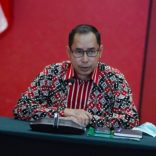Mozambique: Maputo-KaTembe bridge will be closed from 10:00 p.m. Tuesday to 4:00 a.m. Wednesday
“Hidden debts”: Lusa reports

File photo: Lusa
- ‘Hidden debts’ accused tells court current president okayed project
Teófilo Nhangumele, one of the accused in Mozambique’s ‘hidden debts’ case, has told the court that the country’s current president, Filipe Nyusi, encouraged the maritime protection project at the centre of the illegal loans, at a time when he was minister of national defence.
Nhangumele was among those involved in the meetings in which Privinvest, the Abu Dhabi-based shipyard company accused of paying the bribes funded by the loans, presented solutions in the form of equipment for the integrated system of coastal protection, after an informal invitation by Cipriano Mutota, the then director of studies and projects of the State Information and Security Service (SISE), who is also a defendant in the case.
Nhangumele – who was described by Mutota as someone who worked for the SISE, ended up being a key player in the exploratory meetings between Privinvest and the Mozambican authorities at the time, due to his command of the English language and experience in working with multinationals.
In Wednesday’s court hearing, Nhangumele said that Nyusi, as minister of national defence, agreed to the project, after a presentation made in 2011 to the then president, Guebuza, at the latter’s office.
According to Nhangumele, Nyusi said: “We are asking to move forward with this process.” In response, Guebuza said: “If you are satisfied, we can go ahead.”
Nhangumele also told the court that he had presented an improved project for the system to Nyusi and other ministers of the then government, at another meeting held in Nyusi’s ministerial office. At that meeting, Nyusi asked Nhangumele to translate a project document from English into Portuguese.
At the end of the meeting, according to Nhangumele, Nyusi informed him that the government was dispensing with his services, since he was not a state employee, much less a member of the country’s Defence and Security Forces.
“I was disgusted when, in a polite manner, the minister of defence informed me that I was no longer part of the process,” Nhangumele said in court. “My concern was how it was going to be from then on, because I was the one who knew the project best.”
Nhangumele added that, after he was dismissed by the then government, he was hired by Privinvest as a consultant in the implementation of the integrated maritime protection system, and signed a contract for that purpose.
The link between Nhangumele and Privinvest did not last long, because the company’s official in charge of relations with the Mozambican authorities, Jean Boustani, avoided having any contact with im.
A few months later, Nhangumele learned that Privinvest had deposited in his account, opened in Abu Dhabi, the amount corresponding to the fees for the work he had done for the shipyards.
Nhangumele told the court that he learned of the deposit of the money through Bruno Langa, another defendant in the case and a friend of Guebuza’s son, Armando Ndambi Guebuza, who is also a defendant.
Nhangumele did not say at Wednesday’s hearing how much he had received for his consultancy services to Privinvest, but the charge sheet drawn up by public prosecutors states that he received $8.5 million (€7.2 million) in bribes for his role in the loan scheme.
Nhangumele said that Privinvest offered to sell satellites, speedboats, frigates and helicopters, among other equipment for the integrated coastal protection system, and to set up shipyards, as well as training staff to operate the system.
Nhangumele is to continue his testimony on Thursday.
In allegations read out on Monday, the public prosecutor accused the 19 defendants of having come themselves in a “gang” to fleece the Mozambican state, leaving the country “in a difficult economic situation” that ultimately led to technical default.
Their conduct is said to have deprived the state of $2.7 billion loaned by international banks with state guarantees issued without the knowledge of parliament or other state institutions.
According to prosecutors, the defendants committed crimes including association to commit crimes, graft, receiving of bribes for illicit acts, money laundering, embezzlement, abuse of office or function and document forgery.
- Project used for loans in hidden debts case different from original – ex-secret service officer
The project for maritime protection in Mozambique used in the hidden debts “has nothing to do” with the one drawn up by the State Information and Security Service (SISE), a Mozambican secret service officer said in court on Wednesday.
“The project used later has nothing to do with mine, it is not ours [SISE’s],” Cipriano Mutota, the institution’s former director of Studies and Projects and a defendant in the hidden debts case, said in a statement to the court.
Mutota said that the implementation of the document drawn up by his institution had a final revised budget of 360 million dollars (306.7 million euros), after the initial cost had been estimated at 302 million dollars (257.3 million euros).
The figures put forward by the SISE officer are by far less than the US$2.2 billion (two billion euros) that correspond to the sum of the hidden debts and the US$2.7 billion (2.3 billion euros) referred to on Monday by the public prosecutor’s office as the result of losses to the country.
In his hearing in court yesterday, Cipriano Mutota pointed out that the SISE project was based on the phased implementation of the integrated maritime protection system, with each stage depending on the success of the first.
“Perhaps, in appearance, our project has similarities with the one that was later approved,” he said.
The SISE project was drawn up between 2007 and 2008 and was presented to the then President of the Republic, Armando Guebuza, and the holders of Defence and Security portfolios, including the then Minister of Defence and current Head of State, Filipe Nyusi, Cipriano Mutota added.
The document identifies threats such as terrorism, piracy, drug and human trafficking and illegal fishing in Mozambican waters.
At ysterday’s hearing, Cipriano Mutota reiterated that he received $980,000 (833,000 euros) of the hidden debt money, but said he was unaware of the illegality of the payment, having deduced that the money corresponded to a “thank you” for the role he had played in the project.
“I thought the money was for my contribution to the project. I received that money after I left office and was placed on a traineeship at the Ministry of Foreign Affairs,” he said.
He also claimed to have received the money from Jean Boustani, a negotiator at Abu Dhabi-based shipyard company Privinvest and accused of being the person who paid the bribes fuelled by the hidden debt money.
In allegations read out on Monday, the public prosecutor accused the 19 hidden debt defendants of forming a “gang” to fleece the Mozambican state and leave the country “in a difficult economic situation.”
“Whoever forms a gang to steal from the state does not serve the state. The defendants acted together, putting their private interests above the interests of the State,” said Ana Sheila, the Public Prosecutor who read the indictment.
The conduct of the 19 defendants, Sheila said, siphoned off US$2.7 billion from the state by raising it from international banks through guarantees provided by the government.
- Ex-minister Chang to be heard as declarant in main hidden debts case
Manuel Chang, a former finance minister of Mozambique, is to be called to make a declaration in the ongoing trial of the main case relating to the country’s “hidden debts”, the judge in the case has ruled.
According to the decision by the judge, Efigénio Baptista, announced on Tuesday, Chang is to be heard “as a declarant, when he is in national territory, at which time a date will be set for that purpose.”
The judge made the announcement in response to a request from Gilberto Correia, a former president of the Mozambican Bar Association (OAM), who is taking part in the trial representing that entity, as an assistant to the public prosecutor.
Correia’s request that the former finance minister be heard as a declarant in the main trial was supported by the office of public prosecutions and by lawyers for the 19 defendants in the case.
On Monday Chrispin Phiri, a spokesman for South Africa’s Ministry of Justice, told Lusa that Chang would be extradited to Mozambique. He has been in detention in South Africa since December 2018 following an extradition request submitted by the US relating to his role in the hidden debts case, but in the meantime Mozambique has also requested his extradition to his homeland.
“The Ministry of Justice and Correctional Services therefore confirms that a decision has been taken to extradite the accused to Mozambique,” Phiri said. He explained that after considering the varius parties’ representations and “new facts”, Chang was “considered extraditable” under section 10 (1) of the South African Extradition Act.
“The accused will therefore be handed over to the Mozambican authorities to be tried under Mozambican law for abuse of position and function, violation of budget laws, fraud, embezzlement, passive corruption, money laundering and criminal association,” Phiri said.
The transfer of Chang from the Modderbee Correctional Centre, east of Johannesburg, to the custody of the authorities in Mozambique is being facilitated by Interpol, Phiri told Lusa.
Chang is being handed over after Monday saw sessions began at the Maputo City Judicial Court in the trial of 19 defendants accused of involvement in the hidden debts case.
Chang, 64, was detained at O.R. Tambo International Airport in Johannesburg on 29 December 2018 as he tried to board a flight to Dubai, as a result of an international warrant issued on 27 December by the US Department of Justice, which sought his extradition as part of its own investigation into the hidden debts.
According to the US indictment, Chang ensured state guarantees for over $2 billion in loans that were secretly contracted for public companies Ematum, Proíndicus and MAM, which are active in fishing and maritime security in Mozambique.
In his native Mozambique, Chang is accused in three separate cases, according to the extradition request submitted by the office of Mozambique’s attorney general to the South African authorities in 2019, and which Lusa has seen.Chang was Mozambique’s finance minister during the government of President Armando Guebuza, between February 2005 and December 2014.












Leave a Reply
Be the First to Comment!
You must be logged in to post a comment.
You must be logged in to post a comment.